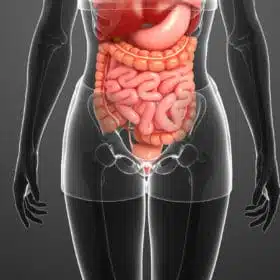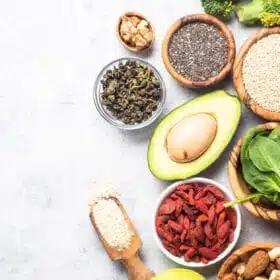Admittedly, the world of fitness sports sometimes seems like a parallel universe that is difficult to understand and operates according to completely different rules. So it's no wonder that protein is not the same as protein for fitness athletes, which may have the average person rubbing their eyes in amazement. Perhaps you have also asked yourself what the difference between the various types of protein is and what the point is that they are assigned to separate purposes. In the following, we would like to take a closer look at an extremely versatile protein, the Casein, whose properties you can easily take advantage of to optimize fat burning and muscle building.
What is casein?
Behind the somewhat unwieldy and chemical-sounding term casein is nothing more than milk protein in German. In practice, it is precisely the protein portion of milk that does not end up in the whey. Since it is precisely this type of protein, which makes up a good 80 percent of milk in cattle, for example, that makes up a large part of the protein in dairy products such as quark or even cheese, the reason for the obvious name relationship between casein and cheese is obvious. More precisely, the term milk protein refers not to a single type of protein, but to a group of four proteins whose individual mixing ratios vary among different farm animals and have a corresponding weighting of amino acids. Casein, meanwhile, is an extremely high-quality animal protein that, due to its characteristic occurrence in nature, is of crucial importance for the development of young mammals in particular. Not least due to its property as a source of calcium and phosphates, milk protein has some decisive advantages for athletes.
What are the benefits and functions of milk protein?
The amino acids contained in casein are not only crucial for the maintenance of vital metabolic processes, but also serve the organism primarily as high-quality starting material for cell construction. The special biochemical properties of the amino acids they contain lead to a slower absorption rate, which you can use to your advantage, since foods with a high proportion of milk protein keep you full for a particularly long time. Especially in the context of a calorie-reduced diet, this is a decisive advantage to avoid cravings. Due to the slow but constant absorption of the proteins in the gastrointestinal drink, the high-quality amino acids also remain in the blood for many hours, so that your organism has building blocks available for repairing and building new tissue over a longer period of time.
What are the disadvantages of milk protein?
Since milk is actually only part of the natural diet of mammals like us humans in the early stages of our lives, the consumption of milk, dairy products and thus also milk protein is not possible for all of us without problems. Nevertheless, since humans became sedentary, our organism has adapted to the consumption of milk protein at an advanced age, at least in our latitudes, so that the majority of Europeans have the appropriate digestive enzymes. Nevertheless, many people have problems digesting casein, primarily due to the lactose it contains. This lactose intolerance, which is also widespread in this country, is due to the lack of corresponding digestive enzymes. From a genetic point of view, this is mainly the case in people of Asian descent. Those who suffer from a diagnosed lactose intolerance must therefore switch to comparable products such as Egg Protein.
When should I use milk protein?
Due to its unique properties, milk protein is especially suitable if you want to supply your body with high-quality proteins in the long term. This is the case, for example, if you are unable to eat a protein-rich meal every two to three hours for work-related reasons, as the slowly digestible proteins remain in the blood for up to eight hours and provide your body with valuable building blocks for muscle growth. In addition, the constant presence of a sufficient amount of amino acids also prevents the breakdown of the body's own protein structures in the course of catabolic metabolic processes, which take place increasingly in the context of a diet. Accordingly, foods rich in casein are also excellent for optimizing the protein supply at night, since you naturally don't necessarily want to get up every three hours and eat something. This is primarily advantageous because your organism regenerates particularly effectively at night and repairs the muscle structures stressed by the training.
What are the sources of high-quality milk protein?
As already mentioned, casein is mainly present in milk and dairy products, so you can use yogurt, cheese and milk as excellent sources of casein. The highest milk protein content, on the other hand, is found in low-fat quark, which is traditionally a staple food with outstanding properties for most strength athletes. This virtually fat-free quark not only contains a good 60 grams of protein per 500 gram cup, but is also characterized by a very low lactose content, so that even people who suffer from lactose intolerance can use it as a source of casein. Apart from that, low-fat quark is an extremely favorable protein source in terms of implied protein quality. Apart from natural foods, you can of course also fall back on a wide variety of protein powders, which provide you with a broad spectrum of culinary variety thanks to their variety of flavors.
How should I dose casein in practice?
Unlike classic micronutrients such as vitamins, minerals and trace elements, there is no generally applicable dosage recommendation for casein, since it is basically a macronutrient whose requirements depend on your physical conditions. However, if you use such a protein powder, for example to bridge the night or a long workday, a dosage of about 0.5 grams per kilogram of body weight is recommended. An overdose with significant side effects is not possible. However, it is important that your organism can digest lactose properly. In case of doubt, you should have this clarified by your doctor.




